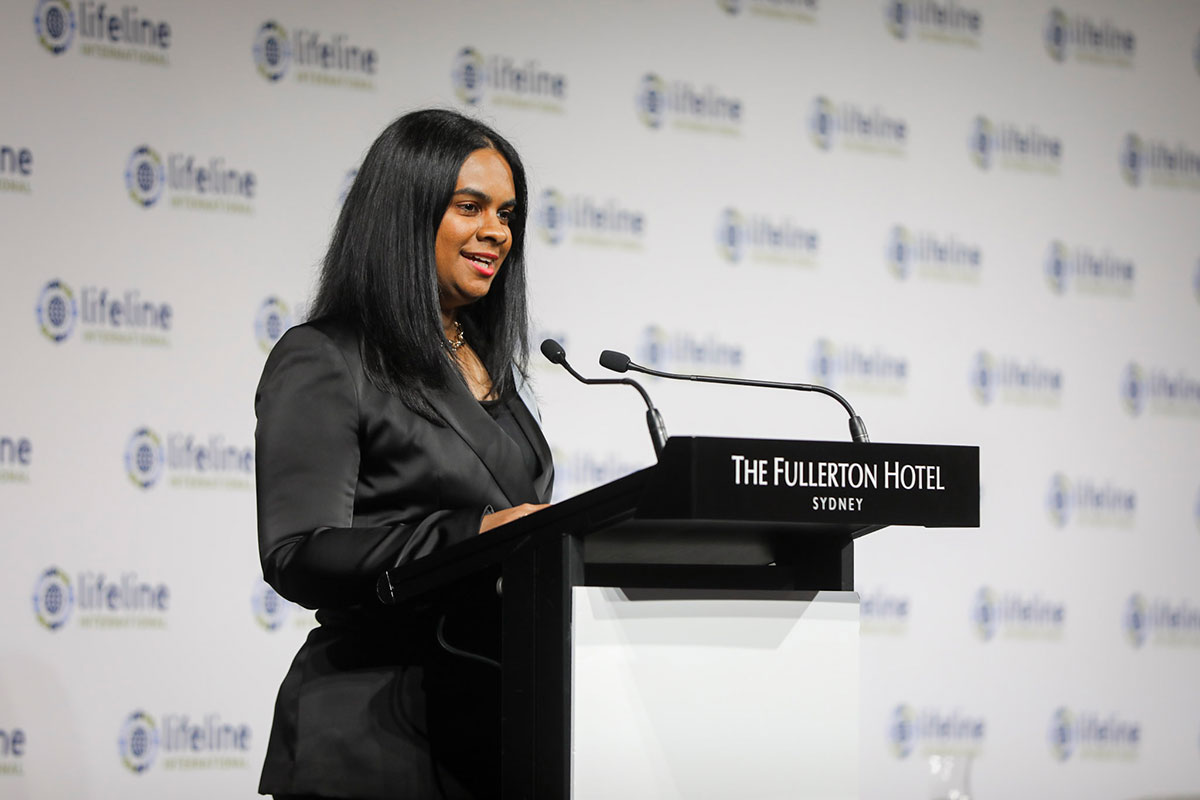How the decriminalisation of suicide is gaining momentum
August 2023
Thilini Perera, CEO, Lifeline International
There is definitely momentum in suicide decriminalisation around the world. That’s a bold but accurate statement that I hope resonates with all who share our vision for a world without suicide.
I am excited to share with you progress in Ghana and Malaysia. Both countries’ Parliments have passed legislation to decriminalise suicide. Lifeline International has Members in both these countries and we continue to celebrate the changes that will remove laws which are barriers to people seeking help in times of suicidal crisis and despair.
These legal changes are the result of an enormous amount of work, over many years, by crisis– line leaders and suicide prevention activists, supported by coalitions of professionals and clinicians, civil society leaders and of course, the ever-committed community volunteers.
In Ghana, a research-informed campaign for change was driven by the Ghana Association for Suicide Prevention (GASP) and the Centre for Suicide and Violence Research (CSVR) based in the University of Ghana’s Department of Psychology. We are delighted to have welcomed GASP as a Member in January this year, and to have provided international support to its campaign. Evidence-based arguments and effective stakeholder engagement drove the final successful chapter of this campaign, along with relentless work to engage key Parliamentary leaders on the urgency of the need for change.
In Malaysia, the path was very different – a grass-roots youth movement, #KitaJagaKita, coalesced as a protest from young people at the dramatic increase in youth suicide during and post-COVID19 – demanding that the government urgently enact legal change. The community-led movement, joined with several civil-society organisations and grass-roots organisations such as the #BenderaPutih movement, advocated for the change in legislation. This action led to the passing, in May 2023, of an amendment to the Victorian-era legislation in Parliament. The movement’s supporters canvassed for Malaysia to adopt an approach to mental health and suicide prevention based on compassion, data-driven solutions, and ethical policymaking.
The change of law to decriminalise suicide sends an important signal – that it is ok for people to seek help in times of crisis. This is unlikely to happen when suicide is a crime. People will not disclose their despair if they think doing so will lead to punishment. The changes to the law provide opportunities to address the self-directed and social stigmas that inhibit help-seeking. And once the law changes, the next challenge comes sharply into focus – getting lifesaving help to those in need when they need it.
This is where LifeLine International can make a significant impact: by supporting or enhancing crisis lines so that they can meet the demand of increased help-seeking and by leveraging the collective know-how and experience of our Members to drive the greatest impact in the shortest amount of time.
In Malaysia, we have added our 26th Member, SNEHAM Malaysia, operating in Tamil, Bahasa and English and with the geographic footprint to complement our long-term Member LifeLine Malaysia. In Ghana, we will assist and support the launch of the first suicide-specific national crisis line. I personally look forward to sharing further news of its establishment and commencement with our Membership and connecting your insights with their success.
On behalf of all our Members, I add my appreciation and congratulations for the roles our Malaysia and Ghana colleagues have played in supporting these legal changes. Both these next steps are so important because it means we can get more services to more people in more places – which in the end is our mission.
Decriminalisation of suicide is a critical step to changing the attitudes that inhibit help-seeking that will enable the prevention of suicides. This underlines and re-energises our commitment to launch our global campaign to support suicide decriminalisation wherever it remains a crime.
In the past few years, decriminalisation has occurred in Pakistan, India, Singapore, and Guyana. More recently, Ghana and Malaysia have moved to decriminalise suicide. The momentum for change is growing around the world. The message is clearly being put forward that care, not punishment is a more effective approach to suicide prevention.
